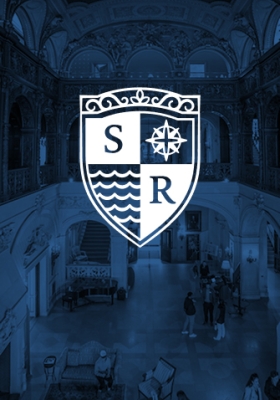
Student Accessibility Services
Salve Regina University is committed to providing students with disabilities equal and integrated access to its educational, residential, social and recreational programs.
Student Accessibility Services (SAS), as required by the Americans with Disabilities Act of 1990 and Section 504 of the Rehabilitation Act of 1973, ensures that students with disabilities receive appropriate accommodations and assistance in order to participate fully in University programs.
Salve does not require students to disclose a disability or impose accommodations without consent. Self-identifying a disability and requesting accommodations are personal decisions. If you request accommodations at Salve, you're responsible for completing the SAS registration process.
Registration Process
Every academic year, you must submit an application to register with SAS.
You'll be required to upload documentation as part of the registration process if:
- You're registering with SAS for the first time.
- Your disability status has changed since your last meeting with SAS.
In these cases, you won't be able to submit your application without including documentation. Please email accessibilityservices@salve.edu with any questions.
You won't be able to meet with SAS until your application is submitted and approved. You'll be notified of approval via email.
Housing Accommodation and Emotional Support Animal Requests
The housing committee meets once a month to review accommodation requests. You'll be notified via email if your request has been approved or denied. Emotional support animal requests are part of the housing accommodation application process.
Appeals process: If you disagree with a decision, you have the right to appeal. Appeals must be filed within seven days of the date the outcome email was sent, and you must reply to both the Office of Residence Life and Student Accessibility Services. No student will be subjected to negative consequences or suffer retaliatory action as a result of filing an appeal.
Academic Accommodation Requests
Once your application has been approved, you'll be invited to meet with SAS. During this meeting, we'll work with you to determine reasonable accommodations and, based on that conversation, provide letters of accommodation to give to your faculty. It's your responsibility to then meet with faculty to discuss how the recommended accommodations can be implemented in class.
Salve is not obligated to provide accommodations that represent an undue hardship to the University, or that would represent a fundamental alteration of its essential programs. Temporary accommodations may be provided if you need additional time to provide disability documentation and the need for accommodation or academic adjustments is deemed likely on the basis of the information provided. Please email accessibilityservices@salve.edu in these instances.
Important Deadlines
If you're planning to request accommodations as part of your registration with SAS, you must meet certain deadlines. Accommodations not requested in the timeframe and manner outlined by the University may not be guaranteed.
Deadlines for Housing Accommodation Requests
- Feb. 1 for rising sophomores, juniors and seniors
- June 1 for incoming students
Deadlines for Academic Accommodation Requests
You should aim to have your application submitted before the start of the academic year, but registration can happen throughout the year. Applications submitted during the academic year are reviewed on a weekly basis and require time to be implemented. You cannot register with SAS during final exam periods or at the end of a semester.
For specialized accommodations (ie., the use of assistive technology, sign language interpreters), we require at least two weeks' notice.
Documentation Guidelines
As part of the registration process, you may be required to submit documentation from a qualified health care provider. Documentation should be current and relevant, providing clear and specific information about the nature of your disability and its present limiting impact on learning and living at the University. You are responsible for obtaining this documentation from your provider.
Documentation could include:
- A recent medical, psychiatric or psycho-educational evaluation
- A certifying professional form
You may also elect to upload supporting documentation in addition to those outlined above. These will be considered on a case-by-case basis and could include:
- IEPs
- 504s
- Older assessments


